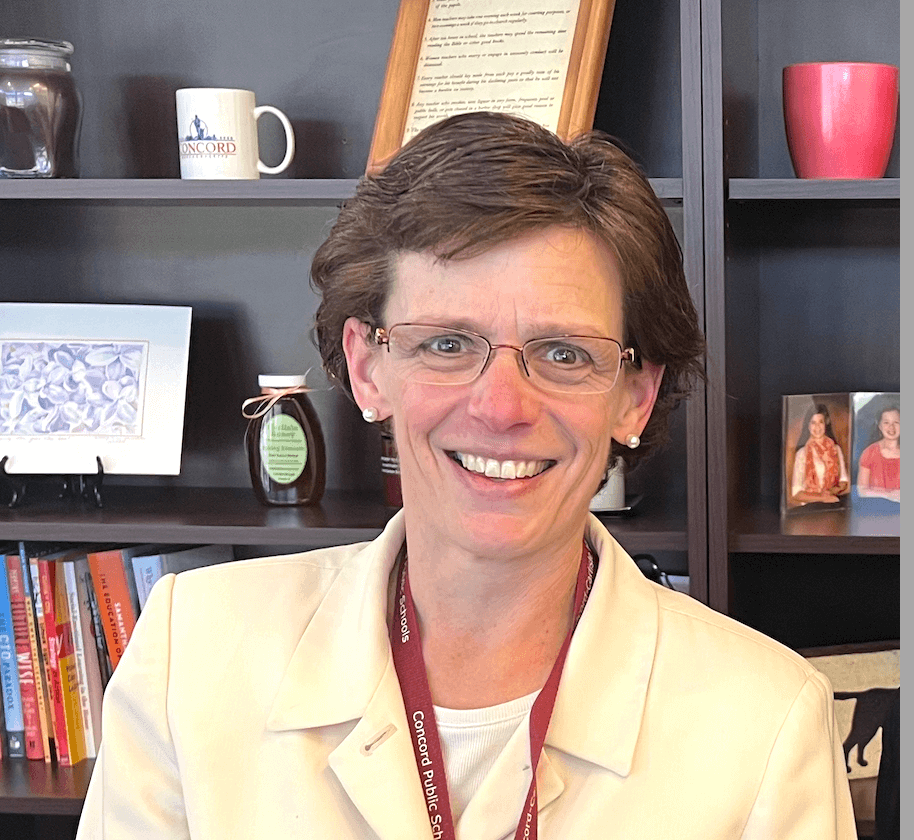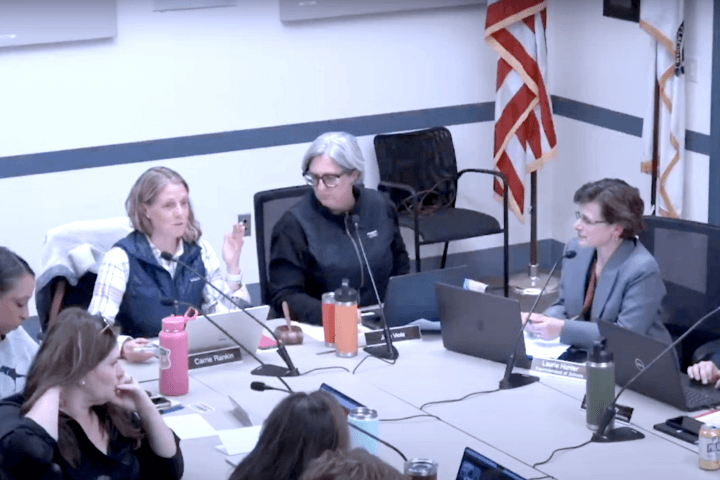By Erin Tiernan, Dakota Antelman, and Felicity Zhang
Concordians aligned with voters across Massachusetts on nearly everything on the November ballot — but not on ditching a standardized test required for high school graduation.
A slim majority of Concord voters — 51 percent — wanted to keep the comprehensive statewide assessment mandate, MCAS, in place.
Voters statewide ruled in the opposite direction, with 59 percent saying “yes” to Question 2 to eliminate the requirement, unofficial local and Associated Press tallies show.
What to do about the MCAS, the state’s top educational metric since 2003, was among the most divisive of the five November ballot questions among Concordians, too.
Now, attention is turning to how school systems figure out who’s eligible for a diploma.

Students react
CCHS hallways and classrooms were abuzz with the testing news, sophomore Alexandra Hooven told The Concord Bridge.
Tenth graders will still take the MCAS this spring, Concord administrators said, but Hooven said she’s glad graduation will no longer hinge on passing it.
“We get worksheets where teachers tell us, ‘Oh, it’s just to prep for MCAS,’” Hooven said. “It’s not teaching us things for the real world or things that teachers think are going to benefit us. They’re teaching us so we pass these tests.”
But class of 2025 member Kai Henning worries that “a Massachusetts high school diploma will mean less if there isn’t a standardization across school districts.”
Senior Veronica Moy, who was old enough to vote in the November 5 election, said an “MCAS score is not an accurate representation of a student as a whole.”
Still, she said, she voted no, having decided the assessment was “necessary to bring students up to the same statewide standards.”
And eleventh grade English teacher Corey Brown said she was glad to see the MCAS requirement go because it was keeping a diploma out of the hands of students who otherwise met the graduation requirements.
“There are lots of other ways for us to have high standards without having a test that has such high stakes attached to it,” Brown said.

On parents’ minds
Concord-Carlisle High School parent Peter Jantzen voted “yes” to nixing the mandate.
“I don’t believe its value outweighs its detriments, and I have faith in our CCHS teachers and prefer we let them do their job,” said Jantzen, who’s sent four children to CCHS, including two who are there now.
Krys Streeter-Tarlow of the Concord Special Education Parent Advisory Council said parents worried the MCAS “caused most harm to the students who are the farthest from educational justice.” But she said some also fear standards could decline without a unifying metric.
Concordian Amelia Stubblebine, a social worker with kids in the 10th and 12th grades, said MCAS was supposed to keep educators accountable, but “the only ones to suffer are the kids who don’t graduate — 700 of them annually in Massachusetts.” Other students may not be grasping the material, but merely “learning how to test effectively.”
Erin Sahacic, a member of the Parent Teacher Group at Thoreau Elementary School, also voted “yes” — even as she also cautioned against abolishing MCAS entirely.
“I appreciate having a standard of education for K-12,” she said, “but I think that once students reach 12th grade, their academic success and the rigor of what they’ve studied should indicate that they are ready for graduation.”
Administrators respond
Superintendent Laurie Hunter said administrators woke up on November 6 asking, “Now what?”

Courtesy photo
Hunter addressed the School Committee at its meeting that evening and said officials heard from state Department of Elementary and Secondary Education (DESE) Commissioner Russell Johnston. “He did a nice job of getting information to us in a timely way,” she said.
DESE says the new rules will take effect in December.
Instead of weighing MCAS as a graduation requirement, Hunter said schools may revert back to a Covid-era “competency determination” where students must pass a course in each of their core content areas.
School officials will certify students’ passing grades.
“That was a little comforting that we have a process that we’re already familiar with,” Hunter said. “But it feels like there’s a lot of details to work out.”
Hunter said Concord schools will continue to use MCAS data as one way to review progress.
But the district can’t opt out of new regulations and keep MCAS as a graduation requirement, she told The Bridge.
In an email, School Committee chair Julie Viola said the CCHS “has always prided itself on providing a well-rounded education that goes beyond standardized tests.”
While MCAS has been useful, Viola said it’s just one way to measure student achievement for graduation.
“We’re confident in our school leadership team’s ability to track and support student growth through a combination of rigorous coursework, various assessments, and other evaluations that provide a more comprehensive picture of each student’s capabilities,” she said.
Sarafina Zhang and Christine M. Quirk contributed to this report.







